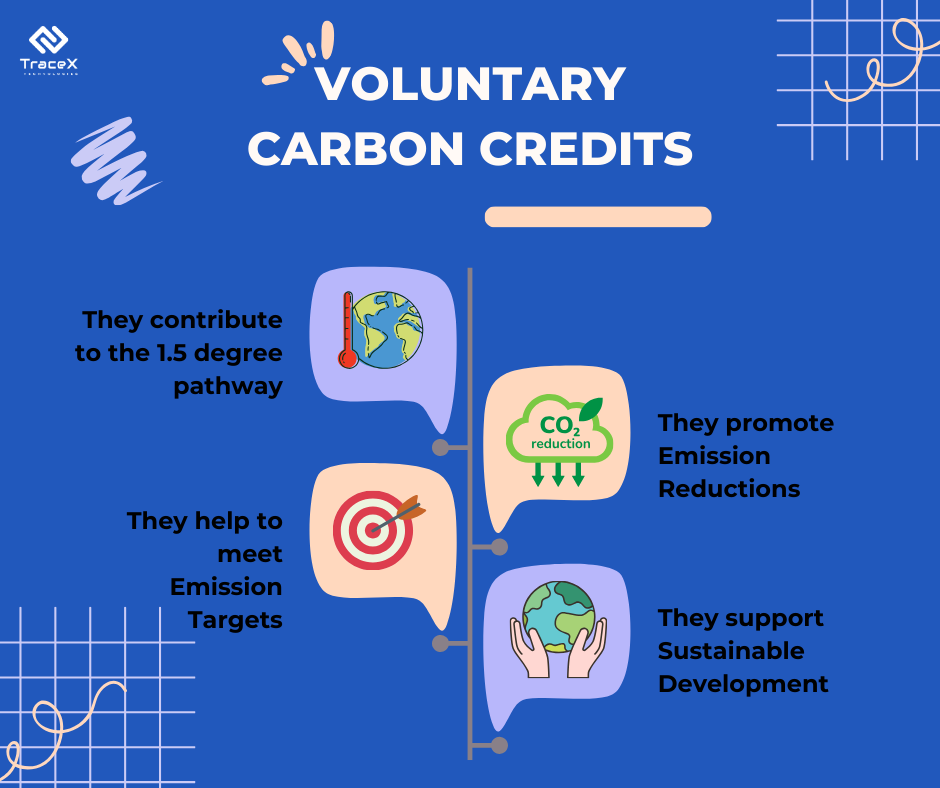Contact: +91 99725 24322 |
Menu
Menu
Quick summary: Explore the essential insights on "Building Integrity into the Voluntary Carbon Market." Uncover the core principles, standards, and strategies shaping a trustworthy carbon market. Discover how transparency and accountability pave the way for a sustainable and impactful approach to carbon credits.

A central topic in climate change discussions in early 2023 underscores the critical necessity of ensuring integrity within the voluntary carbon market. The Voluntary Carbon Market (VCM) stands as a critical player in the global effort to combat climate change, offering organizations the opportunity to voluntarily offset their carbon footprints.
In the midst of escalating climate concerns, the VCM has gained prominence as a mechanism for driving real change. However, to truly make a difference, it is imperative that we delve deeper into the intricacies of the VCM, with a keen focus on building and sustaining integrity within this dynamic and evolving ecosystem.
The latest report from the Intergovernmental Panel on Climate Change (IPCC) has once again underscored that we are falling short in our efforts to limit global warming to 1.5°C or even 2°C. To align with the climate target set by the Paris Agreement, there is a pressing need to reduce nearly 50% of the global greenhouse gas (GHG) emissions from 2019 levels by 2030. The voluntary carbon market emerges as a crucial ally in this endeavor. Projects centered around nature-based carbon credits, such as forest conservation and reforestation, have the potential to contribute over 30% to the necessary net emission reductions by 2030.
Through offsetting unavoidable emissions with carbon credits, companies establish an implicit internal price on carbon emissions. This incentivizes them to actively reduce their greenhouse gas (GHG) emissions. Carbon credits offer financial backing for a range of projects, including renewable energy, energy efficiency, reforestation, and various initiatives aimed at avoiding and removing emissions. These credits stimulate innovation and play a crucial role in financing novel solutions to curtail emissions, fostering sustainable development in the process.
Approximately 2000 companies have pledged to achieve net-zero targets, as indicated by the Science-Based Targets initiative, the predominant standard for companies in formulating emission-reduction objectives.
Experts project that we can only achieve a reduction of 90-95% of emissions; any remaining emissions must be addressed through systems, be it nature-based or technology-based, for removal. On the path to net-zero, companies have the option to offset emissions they are currently unable to reduce through the utilization of carbon credits.

Integrity within carbon markets encompasses a commitment to ethical and transparent practices throughout the entire lifecycle of carbon credits. At its core, integrity ensures that the emission reduction projects funded through the VCM genuinely contribute to mitigating climate change. Without this commitment, the credibility and effectiveness of the VCM could be compromised, leading to skepticism and undermining the broader goals of emission reduction.
While the VCM holds great promise, it is not without its challenges. The absence of standardized methodologies, ambiguous additionality criteria, and concerns about the accuracy of reported emissions reductions pose significant hurdles. These challenges, if unaddressed, could erode trust in the market. Therefore, a nuanced understanding of these issues is paramount to implementing effective solutions.
The linkage between integrity and the credibility and effectiveness of the VCM is fundamental. Without a steadfast commitment to integrity, the VCM risks becoming a mere token gesture rather than a meaningful contribution to the global fight against climate change. Upholding integrity ensures that each carbon credit represents a genuine, measurable reduction in emissions, aligning with the overarching goals of the VCM.
The bedrock of integrity lies in the transparency and traceability of carbon offset projects. Stakeholders must have access to comprehensive information about project methodologies, emission reductions, and the overall impact of the credits they purchase. Traceability is crucial for establishing a clear and verifiable link between the financial support provided and the tangible reduction in greenhouse gas emissions.
TraceX, as a leading platform, emphasizes transparency to build trust and confidence among market participants.
Integrity is further solidified by the concept of additionality, ensuring that offset projects lead to real and verifiable emissions reductions beyond business-as-usual scenarios. Robust methodologies for assessing additionality are crucial for preventing the issuance of credits for activities that would have occurred anyway, reinforcing the genuine impact of the VCM. A comprehensive understanding of additionality ensures that the VCM doesn’t merely shift emissions around but actively contributes to a net reduction.
Double counting poses a significant threat to the integrity of carbon markets. Rigorous accounting practices, coupled with standardized reporting and verification procedures, are essential to prevent the same emissions reduction from being counted multiple times. TraceX employs advanced accounting mechanisms, utilizing technologies such as blockchain, to eliminate the risk of double counting and enhance the market’s overall integrity.
The VCM benefits from various existing standards and certifications, providing a framework for projects to follow. Recognized standards such as the Gold Standard and the Verified Carbon Standard (VCS) contribute to the establishment of best practices, ensuring projects adhere to rigorous criteria for emissions reductions. By aligning with these standards, projects gain credibility and contribute to a more robust and trustworthy market.
Regulatory frameworks, such as the International Carbon Reduction and Offset Alliance (ICROA) and Core Carbon Principles, play a pivotal role in maintaining integrity within the VCM. These frameworks provide guidelines for project developers, buyers, and verifiers, fostering a standardized approach that enhances the overall credibility of the market. A robust regulatory framework creates a level playing field and ensures that all participants adhere to high ethical and environmental standards.
A significant stride in enhancing integrity standards took place at the close of March, as the Integrity Council for the Voluntary Carbon Market (ICVCM), an independent governing body for the voluntary carbon market, released the final iteration of its eagerly awaited quality standards. Termed the Core Carbon Principles (CCPs), these standards seek to establish a universally recognizable benchmark for carbon credit quality and integrity within a diverse and fragmented market.
The objective is to provide investors with assurance that they are acquiring high-quality voluntary carbon credits when bearing the CCP ‘label.’ This, in turn, facilitates the intended performance of carbon credits by supporting the financing of nature-based solutions and emerging technologies that might otherwise lack funding.
Organizations like the VCMI and the Integrity Council for the Voluntary Carbon Market (ICVCM) aim to create industry-backed standards and guidelines to establish a quality baseline for carbon credit generation and trading. ICVCM, for instance, is currently gathering comments from different industry stakeholders on its draft Core Carbon Principles (CCPs), Assessment Framework, and Assessment Procedure.
As emphasized by the ICVCM, “we require every available tool operating at full capacity to ensure a sustainable future.”
Technology serves as a linchpin in the enhancement of integrity within the VCM. Advanced platforms, like TraceX, leverage blockchain technology to facilitate transparent, efficient, and secure transactions. Technology ensures the immutability of data, reducing the risk of fraud and enhancing the overall reliability of the carbon offset market. In an era where digital solutions are transforming industries, embracing technology becomes imperative for the VCM’s sustained success.
Blockchain technology, with its decentralized and transparent nature, offers a promising solution for traceability within the VCM. By creating an unalterable ledger of transactions, blockchain minimizes the risk of data manipulation and enhances the credibility of carbon credits. TraceX integrates blockchain to provide an added layer of security and transparency, offering stakeholders a real-time and tamper-proof record of transactions.
Digital MRV tools are instrumental in ensuring the accuracy and reliability of emissions data. These tools streamline the measurement, reporting, and verification processes, reducing the potential for human error and enhancing the efficiency of project evaluation. TraceX’s state-of-the-art digital MRV tools contribute to the market’s overall integrity, providing a robust foundation for credible emissions reduction claims.
The VCM is dynamic, and emerging best practices continually shape its landscape. Collaborative efforts to establish standardized methodologies, transparent reporting, and robust verification processes are crucial for maintaining and elevating the integrity of the market. Stakeholders must actively engage in the development and adoption of these best practices to ensure the VCM’s long-term sustainability.
Integrity is a collective responsibility that requires collaboration among all stakeholders. Project developers, buyers, verifiers, and regulators must work together to address challenges, share insights, and foster a culture of continuous improvement. Open communication channels and stakeholder engagement forums play a vital role in building a resilient VCM. The exchange of knowledge and experiences ensures that the market evolves in a way that benefits both the environment and the participants.
As the VCM evolves, continuous improvement is key to overcoming challenges and enhancing integrity. Future developments may include the refinement of additionality criteria, the introduction of new technologies, and the establishment of more robust regulatory frameworks. Staying abreast of these developments is crucial for market participants to adapt and contribute to a more sustainable future. The VCM’s journey towards enhanced integrity is an ongoing process that demands vigilance, adaptability, and a shared commitment to making a positive impact on our planet.
Building integrity into the Voluntary Carbon Market is not just a necessity; it is a shared responsibility that requires constant attention and collaboration. As the demand for carbon credits grows, the importance of ensuring the credibility and effectiveness of the VCM becomes increasingly apparent. Through transparency, adherence to standards, technological advancements, and collaborative efforts, we can fortify the foundation of the VCM and make a meaningful impact in the global fight against climate change. Together, let’s build a future where every carbon credit represents a genuine step toward a more sustainable and resilient world.
